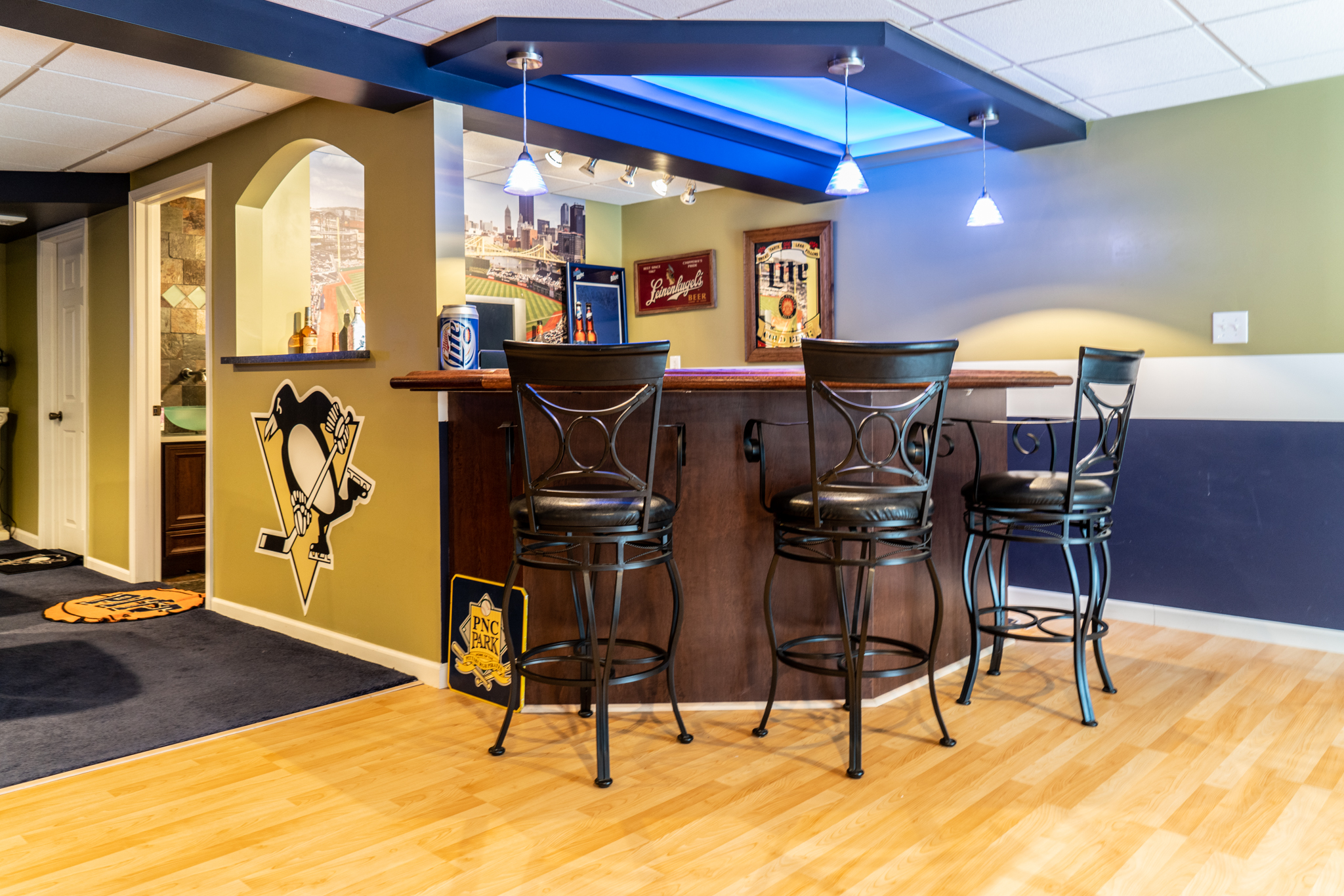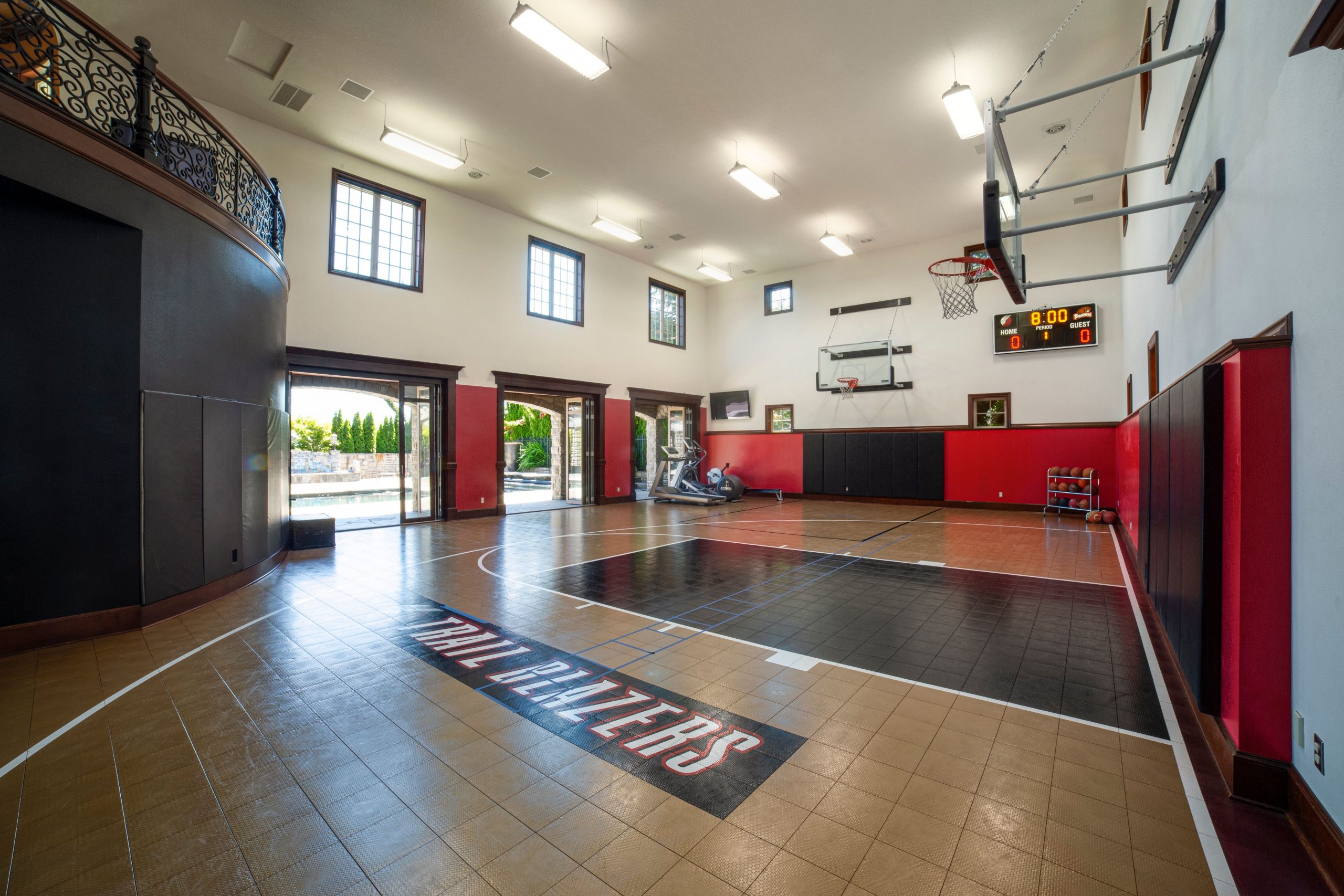By Jesse Williams
Everyone knows someone (or is someone) that makes sports fandom a defining passion. From everyday choices like clothing to enormously important life events like weddings, these individuals dedicate tremendous energy, time and money to their favorite team, school or competition.
But when it comes to the biggest financial decision of their lives, how much do sports factor in? Can the die-hard fans of a franchise or school redefine a real estate market? How do real estate professionals incorporate these incredible passions into their own lives and businesses?
Like everything in the industry, the specifics depend on where you live. But in each disparate city, centered around stadiums or spread through historic neighborhoods bedecked in local colors, sports often draw new lines across the real estate landscape. Whether it is Main Street traditions stretching back 100 years or access to game-day celebrations, catering to sports fans has inexorably shaped how real estate functions—at least in some markets.
Green Bay, Wisconsin, was originally occupied by the indigenous Menominee tribe, eventually colonized and settled by French farmers and fur traders. But the town of just over 100,000, sitting on the edge of Lake Michigan in the frigid northern midwest, is not as much known today for this history, its industry or geography.
Since 1919, Green Bay has been the home of the Packers, now members of the National Football League (though the team actually came into being before the league). Considered a sort of holy city of football, the Packers lay claim to some of the most significant moments, players and developments in the sport, from hosting the 1967 “Ice Bowl” (with gametime temperatures at around -45 degrees Fahrenheit) to the iconic tradition of the “Lambeau Leap” (which sees players leaping into the arms of fans following a score).
Ben Malcore, a broker for Berkshire Hathaway HomeServices in Green Bay, is a lifetime fan of the Packers—truly and literally. His parents put him on the waiting list for season tickets at birth. Two decades later, Malcore received his tickets and has never looked back.
“You see a lot of either former Wisconsinites or even people who are out of the county who are just sort of die-hard Packer fans investing in real estate in and around the stadium,” he says.
Green Bay is particularly unique not just due to its history, but also due to its size and location. About 120 miles from the nearest metro in Milwaukee, the city does not check any of the boxes of a major sports market, and without the kind of amenities available and accessibility inherent to big coastal metros, the Packers themselves provide an anchor both practically and through the team’s culture in Green Bay.
Everything from fancy outlet stores to hotels to tech companies have invested in the otherwise small-town market of Green Bay because of the Packers, Malcore says, including big tech companies like Microsoft.
At the same time, average residents benefit from the presence of the Packers as well. Those with property near the stadium have put their kids through college by renting out their lawns as premium game-day parking.
“Folks put out a sign—’Twenty bucks, restroom available, easy in, easy out.’ And you’re on the road to a small business,” Malcore laughs. “Oh, it’s crazy.”
It is barely an exaggeration to say that Green Bay is owned by the iconic football team. The Packers in fact, developed their own condo district right next to the stadium, selling what Malcore described as “an integrated Packer experience” in 2,200 to 2,800-square-foot townhomes (priced from around $700,000 to $1 million).
Malcore himself sold a couple of these homes—one to a former professional hockey player who wanted “to live Green Back Packers every day.”
With a condo, residents get VIP access to various Packer amenities, including a winter tubing park, a Packers-themed football field, an ice-skating rink and invitations to ownership meetings (the Packers are unique in North American sports franchises in being a publicly traded, non-profit company rather than an individually owned or corporate entity).
Green Bay is not the only place where real estate is defined by a team, or teams. Another much larger mid-Atlantic city in western Pennsylvania has seen its blue-collar, hard-bitten history and culture coalesce around sports fandoms.
Pittsburgh has been Mark Handlovitch’s home his whole life, working on a horse farm when he was young before getting into real estate. When asked about the local sports fandoms, he quickly devolves into a passionate and far-reaching soliloquy, rattling off the names of neighborhoods where local stars grew up, telling stories of encounters with current or former players and describing tailgate scenes with the detail and depth of a renaissance painter.
“These small steel towns, that’s where it really evolved from—it wasn’t the flashy ritzy neighborhoods. In Pittsburgh, it came from the deeply rooted steel towns and the steelworkers and the miners who went to work every day. And the roots are still there,” says Handlovitch.
A great example of this is the city’s hockey franchise, the Pittsburgh Penguins. The team did not have the respect of Pittsburgh residents automatically, nearly forced to fold after a decade of mediocrity in the 1970s and early 1980s.
But when a man named Mario Lemieux—a 6’4,’’ 240-pound son of a construction worker—joined the team in the mid-80s and began dominating the ice with a combination of deft skill and toughness (famously playing in a game the same day he received radiation treatment for Hodgkin’s Lymphoma), Pittsburgh fans showed up. And they kept showing up too, becoming one of the most die-hard fan bases in the National Hockey League.

But the NFL’s Steelers (Handlovitch asks the name be spelled “Stielers” to reflect the local pronunciation) remain the city’s biggest draw. Knowing where to be on fall and winter game days (and pre-game days) is essential, he says. People often want to live on these routes—including a river shuttle service that operates even on sub-freezing winter weekends—if only for the spectacle of parades of black and gold (the team colors all three major Pittsburgh sports franchises).
“You talk about tailgating—tailgating is everywhere here. It’s not just around the stadium,” he says.
Movers and Shakers
There is perhaps no one more dialed into both sports and real estate than Doug Walker of John L. Scott Real Estate in Seattle. For more than four decades, Walker managed the visiting clubhouse for the NFL’s Seattle Seahawks, traveling almost weekly to stadiums from Florida to Michigan (including working three Super Bowls) while simultaneously working as a real estate broker.
Recently retired from the sports side of his work, Walker says understanding the intersection of both fandoms and the practical machinations of the sports world has been foundational to his real estate business.
“A lot of what I do real estate-wise came from me being in professional locker rooms,” he says.
Everyone from players and coaches to team support staff are constantly moving in the sports industry, and Walker says the connections he made working for the Seahawks created an incredibly powerful network of people looking for someone to help them buy or sell a house.
“When you know somebody—their equipment manager has a friend who is moving to Seattle, they would call me up,” he says. “That network has been really a good source of referral business for us over the years. It’s kind of a fraternity—you have coaches that are always moving cities, and players and staff and friends.”
That level of knowledge and connection is obviously unique, and not every real estate agent can get a part-time gig with a professional sports team. But integrating into the sports landscape, as Walker has, can help grow a real estate business in a plethora of ways.
Adam Davis is an associate broker for RE/MAX Select in Portland, Oregon—a city that isn’t necessarily known for its sports fandoms. The NBA’s Trail Blazers, the MLS’ Timbers and the NWSL’s Thorns all maintain extremely passionate fan bases, and the college rivalry (known as the “Civil War”) between the University of Oregon and Oregon State remains red-hot in the area, he says. But Davis adds that a lot of his sports-related connections come from transplants moving to Portland who want to bring and share their disparate team loyalties in a new city.

“Being a sports fan myself—either you’re in Portland so there are no sports to care about other than the Blazers and the Timbers, or you’re a sports fan in general,” he says. “So just being able to keep tabs on other teams gives me a little bit of an insight and a conversation to have with people who are coming from out of town.”
Like in many cities, certain bars, restaurants and neighborhoods have organically developed to cater to fans of specific teams or schools, according to Davis. As a fan of the NFL’s Minnesota Vikings himself, navigating the local scene of national sports loyalties is both difficult and important for his business.
“I can recommend even down to the neighborhood where they can live in proximity to sports venues where they can watch their favorite games,” he says. “I can say, ‘If you wanna go watch a game, don’t go to this bar, because it’s not going to be a friendly audience.’”
Hometown Heroes
Maybe the most important part of sports to a real estate professional is personal and straightforward, and has nothing to do with estimating property values or calculating commute times on game days. In an industry where authenticity is everything, there is almost nothing as local and loved as sports, and someone who can bring their passions to that arena will always have a way to connect with his or her community.
“It’s incomparable to me. It’s a giant party of like-minded individuals,” says Malcore of the Packers fandom.
Handlovich says that in Pittsburgh, he can talk with nearly anyone about specific neighborhoods, towns and high schools where local sports heroes lived or grew up. He speaks excitedly about encountering local legends, and lists a handful of sports stars who actually made their names playing for other teams (Joe Namath, Mike Ditka) but grew up in Pittsburgh. He recalls specific moments—when Houston Oilers star Earl Campbell took an earth-shattering tackle from the Steelers Donnie Shell in 1978.
The feeling of stocking up on game day food, drinks and snacks in the city’s famous Strip District—a concourse lined with historic and local businesses historically home to all the wholesale food peddlers—is something Hadlovich can describe in vivid detail to a Pittsburgh newcomer, or empathize with to others like him who grew up there.
“Even the visitors come down go into the Strip District because the culture down there is amazing,” he says. “It’s the old stores, the old names on them that have been around for generations.”
In Seattle, where stadium location and city layout isn’t as conducive to tailgating as some other cities, Walker says that the Seahawks, Major League Baseball’s Mariners and the NHL’s Kraken connect people across the region in a way that almost no other belief, habit or passion can.
“The fan base here is huge, and the suburbs and the bars and restaurants are always really crowded,” he says. “Each community has their own venues…it’s a common denominator.”
For those in real estate, all of this has tremendous value in building a brand and creating trust and lasting relationships with people. Walker says his local reputation as someone who worked for the Seahawks has directly resulted in people approaching him for the real estate needs, and “sports celebration venues” like garages and ADUs remain common.
Davis says that one of the most fulfilling parts of his profession is connecting people with what they love and value in new living situations. Often buyers are resigned to losing some of the experiences they enjoyed in home-town fandoms when they move, or are afraid of feeling isolated from the overall sports landscape.
Helping them hold onto those feelings can make all the difference, according to Davis.
“Just learning that there are active sports fans here, it is a visible relief for people here, because it’s such an enjoyable pastime for them that they weren’t expecting to hold onto,” he says.
 Jesse Williams is RISMedia’s associate online editor. Email him your real estate news ideas to jwilliams@rismedia.com.
Jesse Williams is RISMedia’s associate online editor. Email him your real estate news ideas to jwilliams@rismedia.com.








